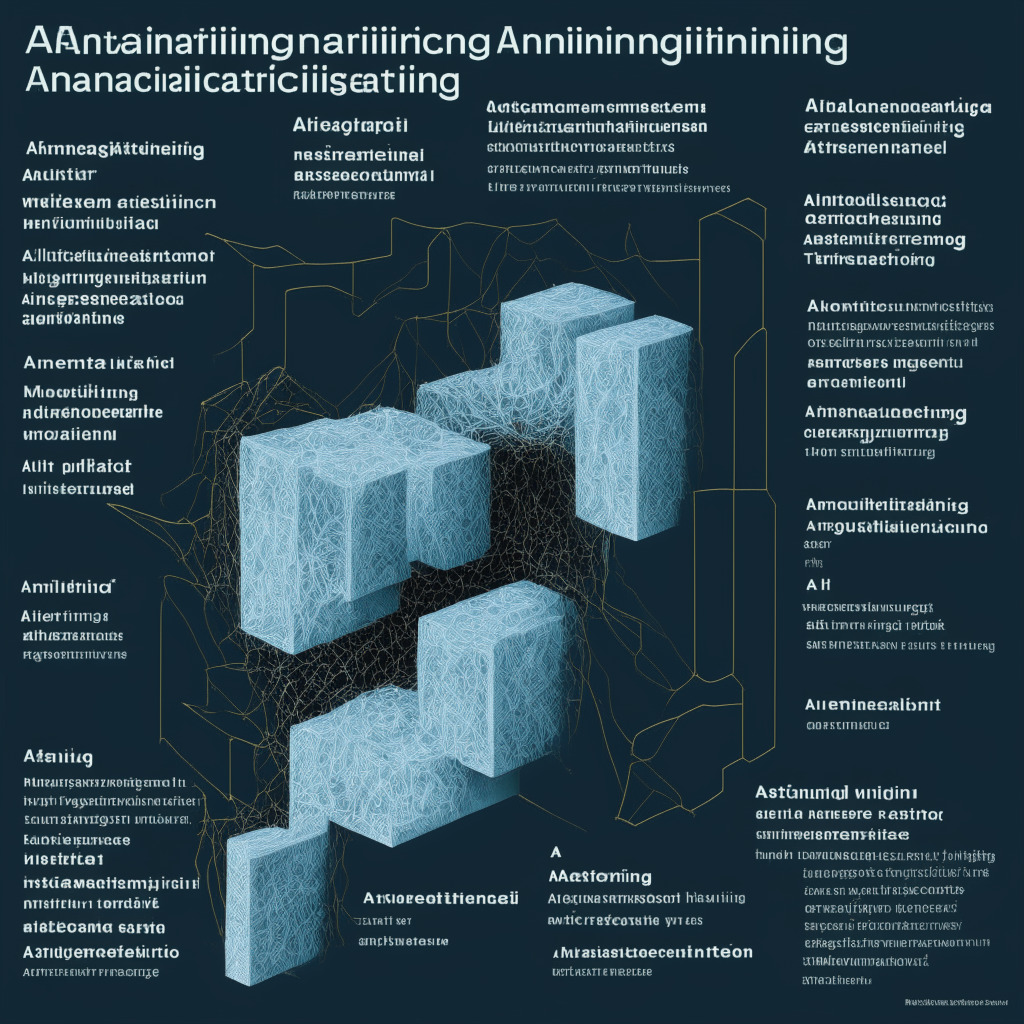“A recent study by the University of North Carolina reveals that Large Language Models (LLMs), such as OpenAI’s ChatGPT and Google’s Bard, may unintentionally retain and regurgitate sensitive data, despite apparent deletion. Attempts to fully purge such information have been largely unsuccessful, presenting challenges in AI and data security.”
Search Results for: large language model
Unraveling the Complexities of Deploying Large Language Models: A Detailed Examination of GPT-3
“Large language models like GPT-3 have revolutionized AI capabilities in interpreting human language. These models, incorporating deep learning techniques, serve tasks ranging from language translation to initiating conversations. However, their successful deployment requires careful planning, with emphasis on user experience and data security.”
Crossroads of Innovation and Security: EU’s Proposed Regulations on Large-Scale AI Models
The European Union is reportedly discussing stricter regulations on large-scale language models (LLMs) like OpenAI’s GPT-4 and Meta’s Llama 2, aimed at controlling these models without overloading start-ups. These discussions touch on the implications of LLMs, user safety, and ethical AI deployment, mirroring the approach of the EU’s Digital Services Act.
Unlocking the Pandora’s Box: AI Models Vulnerable to Harmful Content Generation
AI researchers have discovered an automated method to manipulate AI chatbots like Bard and ChatGPT into generating harmful content. By extending prompts with long suffixes, they can circumvent safety measures designed to prevent the spread of hate speech and disinformation. This raises concerns over misuse and calls for robust protections against such adversarial attacks.
Model Collapse: The Risks of AI Learning from AI-Generated Content & How to Prevent It
Researchers from UK-based universities warn of “model collapse” in AI, where AI learning from AI-generated content leads to polluted training data and disconnect from reality. Ensuring AI models access real, human-produced data for accurate understanding and simulation is crucial to prevent this phenomenon.
UK Secures Early Access to AI Models: Impact on Global Tech Race and Crypto Regulations
The UK is set to receive early access to AI models from Google DeepMind, OpenAI, and Anthropic, as announced by British Prime Minister Rishi Sunak. This move aims to foster cutting-edge safety research, promote global alliance, and invest in AI and quantum technologies, potentially providing the UK with a competitive edge in AI innovation.
Meta’s LLaMA Drama: Senators Scrutinize Leak and Potential Misuse of AI Model
U.S senators raise concerns over Meta’s large language model (LLaMA) potential misuse in harmful activities, questioning Meta’s risk assessment and preventive steps. LLaMA’s leak increased accessibility to high-quality AI models, prompting scrutiny on the balance between innovation and risk.
AI Regulation Debate: Licensing Model Pros, Cons, and Balancing Innovation with Safety
UK officials propose licensing AI technology, similar to pharmaceutical or nuclear power companies, to regulate AI at the developmental level. The approach aims to address concerns about bias, discrimination, surveillance, and potential risks associated with AI technology.
Ernst & Young’s Hefty $1.4 Billion Investment in AI: Boon or Risk for the Future of Technology?
“EY has invested $1.4 billion in AI technologies, targeting the development and launch of the EY.ai platform to aid organizations in adopting AI. The architecture is rooted in EY’s large language model, and gains extra potential through a partnership with Microsoft. The investment is also geared towards integrating AI into existing EY services.”
East Asia’s Blockchain Paradox: Remarkable Tech Advancements Amid Regulatory Challenges & Scams
“Tencent’s new large language model, Hunyuan, features over 2 trillion training parameters, promising more efficient data processing. However, questions about data-handling accuracy persist. Meanwhile, South Korea witnesses an $83 million crypto scam, underscoring the need for greater transparency and accountability in the cryptosphere.”
Tencent’s AI Leap Amidst US-China Tensions: Breaking Down the Hunyuan System
“Tencent has introduced its ‘Hunyuan’ AI system, a multimodal large language model similar to OpenAI’s ChatGPT. The system supports functions like image creation, text recognition, and customer service, and can contribute to sectors such as finance, social media, and e-commerce.”
Anthropic Secures $100M Investment from SK Telecom: Assessing the Future of AI in Telecom Industry
“AI developer Anthropic secured a $100 million investment from South Korean corporation, SK Telecom, to create a multilingual large language model for the Telco AI platform. This move represents SK Telecom’s aspirations to revolutionize the telecom industry leveraging AI technology.”
The AI Mania Dilemma: A Blooming Opportunity or a Bubble Set to Burst in the Crypto Market?
“Once the darling of venture capital funds, AI large language models (or LLMs), are now showing signs of being a bubble that’s on the brink of bursting. Despite attracting $25 billion investment in 2023, demand for these platforms is decreasing, and their performance deteriorating ‘substantially’ over time.”
OpenAI’s ChatGPT App for Android: Bridging the Crypto and AI World
“OpenAI has officially released the ChatGPT app for Android users and it’s garnering attention in the crypto community. Bolstering safety and transparency features, it aims to stretch the limits of its large language model. Despite rising competition, OpenAI remains committed to responsible and ethical AI development, which coincides with the global collaboration and hefty investment in AI research.”
AI’s New Frontier: How yPredict is Revolutionizing Crypto Trading with $YPRED Token
“yPredict, an AI-based crypto trading platform, successfully raised above $2.6 million in its presale. Its ‘Litepaper’ plan aims to create a sophisticated crypto trading platform that offers AI-generated signals and pattern recognitions. The platform also features generative AI chatbots and machine learning-based Large Language Models (LLMs) for efficient financial market forecasting.”
Etherscan’s Code Reader: A Glimpse into Smart Contracts with OpenAI’s Help
Etherscan is beta testing a new feature called Code Reader that allows users to query OpenAI’s large language model for researching solidity smart contracts. This intuitive tool provides valuable insights for developers and non-developers to better understand smart contract operations and functionality. However, it shouldn’t be relied upon in isolation.
EU AI Act Compliance Crisis: How LLMs Fall Short and the Road to Improvement
A recent Stanford University study reveals a concerning lack of compliance with the EU AI Act among large language models, including GPT-4 and Google’s Bard. Researchers ranked ten major model providers on their adherence to the 12 requirements outlined in the AI Act, finding a pressing need for improvement even among high-scoring providers. The study highlights transparency and accountability as crucial aspects of responsible AI deployment.
Unrestricted LLM Interactions: Erasing Boundaries or Opening Pandora’s Box?
The “Start Reply With” feature in Oobabooga’s text generation web UI allows users to elicit unrestricted responses from Large Language Models (LLMs), enabling uncensored and free-flowing dialogues. However, it raises concerns about ethical implications and responsibilities, requiring balanced consideration to ensure responsible AI implementation.
AlchemyAI: Accelerating Web3 Development with AI or Oversimplifying the Process?
Alchemy unveils AlchemyAI, an innovative suite of AI-empowered tools to accelerate web3 product development. Flagship products ChatWeb3 and Alchemy ChatGPT Plugin leverage large language models, facilitating efficient software development and enabling real-time blockchain information access via natural language processing. This could democratise web3 development while fostering a more inclusive and efficient blockchain technology future.
AMD’s MI300X Chip vs. Nvidia’s AI Dominance: Can It Transform the Market?
AMD unveils its MI300X AI chip designed for large language models and advanced AI, challenging market leader Nvidia’s 80% market share. With a maximum memory capacity of 192GB, it aims to increase AMD’s market share and foster innovation in the AI chip market.
Amex’s AI Partnerships: A Future of Streamlined Finance or Controversial Practices?
American Express (Amex) plans to extend its AI capabilities through partnerships for validating transactions, approving credit lines, analyzing customer sentiment, and predicting finances, without creating its own large language model. The company aims to integrate AI into various activities and services while maintaining a cautious approach to incorporating the latest generation of AI technologies.
LLMs Revolutionizing Crypto Trading: Boon or Bane in Market Sentiment Analysis?
The transformative advancement of large language models (LLMs) offers a potential solution for crypto sentiment analysis, with ChatGPT as a notable example. LLMs enable traders to capitalize more effectively on market irrationalities, potentially revolutionizing the crypto landscape.
Cyprus’ Crackdown on Unregistered CSPs, Zimbabwe’s Gold-Backed Tokens &Crypto Follies in China
“Cyprus is tightening regulations on Cryptocurrency Service Providers, aligning with international standards and penalties. In Zimbabwe, gold-backed digital tokens are becoming a domestic transaction method with value ensured by national gold reserves. Despite advancements, crypto fraud remains a pressing concern; investors must exercise caution.”
Navigating Murky Waters: The Saudi-Chinese AI- Blockchain Venture and Binance’s IRI Commitment Review
Saudi Arabia and China are collaborating to create AceGPT, an Arabic-based AI system designed for Arabic queries. Despite its potential, concerns arise over misuse of sensitive information and neglect of safety checks. Meanwhile, the blockchain Industry Recovery Initiative receives criticism for lack of funding transparency amid falling crypto venture funding.
Unleashing AI and Blockchain’s Potential in Gaming: New Dimensions or Risky Bet?
“Ryan Wyatt, former gaming head at Google and YouTube, outlines AI’s role in the gaming industry. While not a replacement for tasks, AI will aid game teams to accomplish more. Wyatt sees blockchain’s potential in game development and its necessity in holding accountability over AI advancement due to its transparent, reliable nature.”
AI and Crypto: Striking the Balance Between Hype and Reality
“AI has greatly impacted the crypto industry, particularly in automated trading through AI-powered bots. However, these bots still lack sophistication in complex trading. AI also helps produce insights from vast crypto data, proving useful in assessing market risks. Despite its potential, AI’s access to off-chain centralized exchanges data is limited, impairing its accuracy.”
AI Revolution or New Tech Bubble? Goldman Sachs Predicts Major Investment Shift towards AI
Goldman Sachs views the boom of Artificial Intelligence (AI) as not a bubble, but the beginning of an AI revolution. The firm predicts global AI investments to reach $200 billion by 2025, attributing this expected surge to the expansive economic opportunities offered by generative AI. Despite this optimism, cautious investment approach has been advised.
Unraveling the Impact of Eased AI Regulations: Case of Alibaba’s Tongyi Qianwen & Blockchain Future
“Alibaba announced the launch of its AI system, Tongyi Qianwen, amidst China’s eased AI regulations. The Chinese government now requires all AI technologies to undergo a vetting and certification process. This leads to queries about the effect on the blockchain and cryptocurrency landscape, and potential lessons the US could learn from this context.”
Gleen’s Chatbot Success & Future Prospects: Showcasing a Vision to Redefine AI Communication
Gleen, a California-based chatbot service, raised $4.9 million in funding, attracting investors from both traditional software and crypto sectors. The firm focuses on blockchain infrastructure channels on Discord, with a proprietary machine-learning layer combating the issue of ‘hallucination’ in artificial intelligence systems and providing accurate data storage and retrieval.
Navigating the Uncertain Waters of AI Progress and Blockchain Fluctuations
“Baidu, China’s tech powerhouse, has released over 70 AI models with over 1 billion parameters each. Recent models show up to a 50% improvement in efficiency. However, the rapid expansion of AI technology raises concerns about misuse and privacy.”
Navigating the AI Wave in Crypto Trading: The Rise of ChatBots and User Trust Issues
“Cryptocurrency exchange Bybit recently introduced ‘TradeGPT’, an artificial intelligence (AI) trading assistant that provides insights using platform market data. The tool utilizes both the ChatGPT language model and Bybit’s ToolsGPT for real-time market analysis and user Q&A assistance, intending to educate users in the complex crypto-sphere.”
Unveiling Apple’s New Gen AI: Bridging Innovation, Security and Ethics in the Tech World
“Apple is developing an in-house AI tool, aiming to enhance user experiences through AI integration in their forthcoming iOS17. However, this raises concerns over data security, prompting debate on whether AI should operate locally or on cloud. This has fueled greater focus on AI for mobile devices.”































